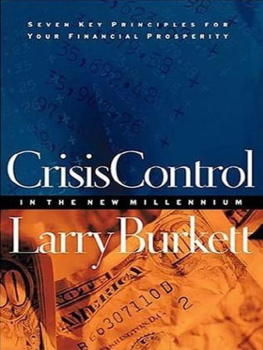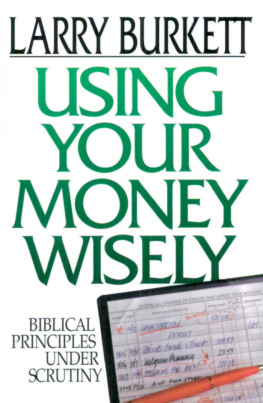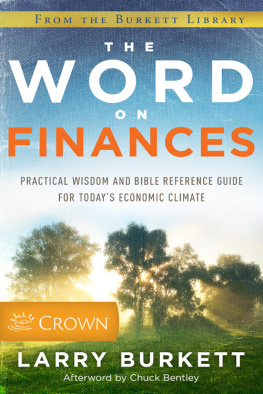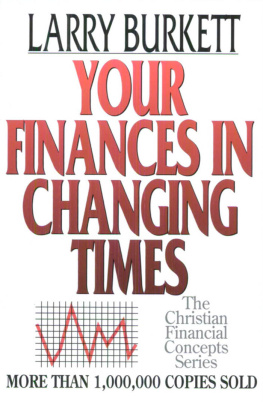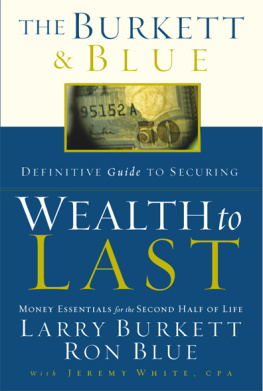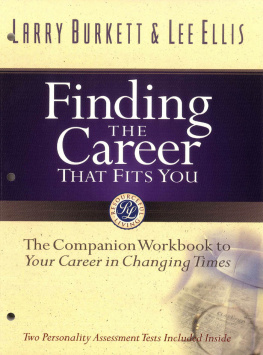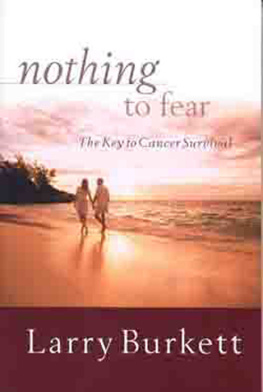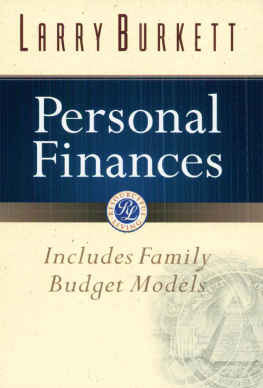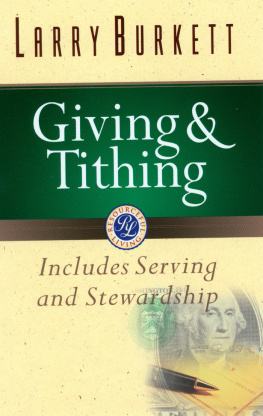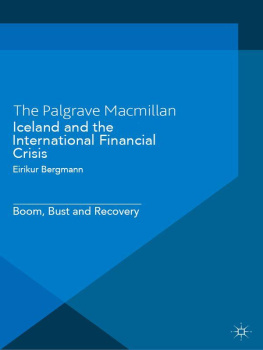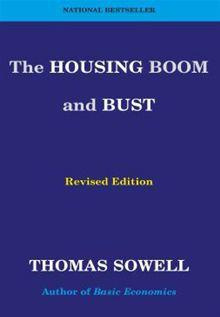
Crisis Control
IN THE NEW MILLENNIUM
Seven Key Principles for Your Financial Prosperity
Larry Burkett

Larry Burkett 1999
All rights reserved. Written permission must be secured from the publisher to use or reproduce any part of this book, except for brief quotations in critical reviews or articles.
Published in Nashville, Tennessee, by Thomas Nelson, Inc.
Scripture quotations are from the NEW AMERICAN STANDARD BIBLE, Copyright The Lockman Foundation 1960, 1962, 1963, 1968, 1971, 1972, 1973, 1975, 1977, 1995. Used by permission.
Edited by Adeline Griffith, Christian Financial Concepts.
Library of Congress Cataloging-in-Publication Data
Burkett, Larry.
Crisis control in the new millennium : seven key principles for your financial prosperity / Larry Burkett.
p. cm.
Includes bibliographical references.
ISBN 0-7852-6939-8
1. Investments. 2. Year 2000 date conversion (Computer systems) I. Title.
HG4521.B788 1999
332.6dc21
99-43088
CIP
Printed in the United States of America
1 2 3 4 5 6 BVG 04 03 02 01 00 99
CONTENTS
I would like to gratefully acknowledge some of the people who made this book possible. Without their help, I could not have written it.
Marcia Moore, my assistant, who typed and reviewed this manuscript.
Jodi Berndt, who took my taped messages and converted them to paper.
Adeline Griffith, my editor, who screened every word, jot, and tittle.
Jerry Tuma, Jerry Webb, Ken Franke, and Jim Shoemaker, who contributed their considerable expertise to provide me with good technical data.
To all: Thank You!
Larry
I f you are reading this book, I suspect you are a loyal reader who understands that I am not some kind of a wild-eyed fanatic. Yet, as I began writing this book about the year 2000 and beyond, the question I had to ask myself was, Why bother? A lot of people wont understand the why behind this type of book. Why not just stick to noncontroversial topics like tithing or how to buy a home? Or, should Christians buy new cars, used cars, or lease rather than purchase?
After all, these would be easier topics to cover, and the answers would not generate a lot of controversy from a biblical perspective. The reason I have written this book is that, in truth, I still see a large, looming economic problem on which virtually no one else is reporting.
Am I the only person who recognizes this problem? I think not. Chairman of the Federal Reserve Board Dr. Alan Greenspan also sees the crisis on our horizon and has spoken out about it several times, as have other leading economists. However, the majority of economists and financial planners, Christian or otherwise, have announced that our economy can continue to expand indefinitely and that there are no serious, potential problems.
Not long ago, a Christian financial planner, who is not very successful in his own right, wrote a book in which he attacked my previous book, The Coming Economic Earthquake (Moody Press, 1991). His comment was that if you had followed the advice of a well-known Christian economist, you would have missed the largest bull market in the history of the stock market. (I believe that is not true, by the way.) But in The Coming Economic Earthquake, I did not say that I thought the economy was going to take a nosedive in 1991or even in 1999. I said that if we did not change our ways we would experience a huge economic crisis sometime after the turn of the century.
Fortunately, with the election of a new Congress in 1994, we didat least in the short termchange our ways. But we still have not dealt with the underlying problems of the way we handle our private and public monies. All weve done is generate enough money to cover them.
For example, as I write, two potential problems are looming over our heads. First, there is the inflated value of our stock market. We are developing what traditionally has been called a bubble. Well consider the bubble economy fully later, so lets look at our second potential problem, which I call the cruising economy.
Our countrys money-handlers continue to cruise as if we face no financial threats, even when nations around the rest of the world have slowed down (in either a major recession or a depressionthe difference being how long their economy has been stagnant). At this point, it appears the travails that have overtaken the rest of the world have left us virtually unaffected. But I do not believe this is possible in the long term.
Ask yourself: Is it possible for the United States to lose 30 to 50 percent of its export market and not experience some economic impact? It is true that we havent seen this loss reflected in obvious waysat least not yet. Americas economy still seems to be sailing along, while other countries seem to be either stuck in the doldrums or smashed on the rocks. Whenever our economy turns downand I believe it is when, not ifAmerican workers are going to bear a heavy burden for all the cheap imports fueling our bargain-basement economy.
Look at our perilous personal financial practices. The level of consumer debt in America continues to escalate, while the savings rate continues to decline. Many consumers are upside-down in loansand not just on automobiles, on which they owe more than the vehicles are worth. They also are upside-down in loans on their housesthrough creative financing.
Mortgage companies advertise their willingness to lend owners 125 percent of the equity value in their homes. What will happen when many of these home owners experience a financial crunch? Are they going to maintain their homes and continue paying back more money than their homes are worth? Will they continue monthly payments on credit card debts that often exceed their net worth, or will they just give the homes back and walk away from a bad deal, leaving banks and credit issuers to absorb the loss? Look at the ethics of our society. What do you think?
An Overview of Y2K
Whenever I mention finances and the year 2000, people always ask me about the Y2K bug. Some Christians think it will cause no inconvenience at all; others believe it will usher in the apocalypse. As I am writing this book in mid-1999, we are facing all of the potential challenges of Y2K compliance. I have listened to both sides of the Y2K debate and reviewed all the available data. Along with my staff at Christian Financial Concepts, I have been looking at this issue diligently for nearly two years, and after a thorough analysis of all available literature on Y2K, including House of Representatives and Senate testimonial data, I have come to two basic conclusions.
First, in the United States, the majority of our basic utilities (transportation, power, light, and water) will remain in operation with localized, sporadic interruptions, although this will not necessarily be true in substantial portions of the rest of the world. Second, the worlds economy (in which the U.S. is a major participant) has the potential of suffering a huge economic hit as a direct result of Y2K. In future chapters we will look at Y2K issues, so for now I just want to acknowledge that I believe it will present a challenge to our seemingly invincible economy.
Stock Speculation
It is a fact that many of my close friends in business and economics agree there is a significant problem looming in this economy: the inflated value of the stock market. But most of them are hesitant about speaking up. Why? Many of them earn their livings in the financial services industry, and if they speak out they will lose clients who believe well have continued unlimited growth. If they adopt a more conservative investment philosophy, their clients will go elsewhere; and so they bide their time and hold their tongues.
Next page
